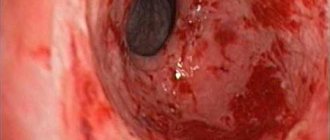What is cachexia?
Cachexia is a condition of the patient’s body in which there is severe weight loss (sometimes extreme exhaustion). Cancer patients with cachexia often experience problems in the functioning of vital systems of the body, which lead to various complications. In some cases, this condition can cause the death of the patient, since in an advanced stage it is almost impossible to rid the patient of cachexia.
In most patients, cachexia is detected when he has lost more than 5% of his total weight within six months. When this condition enters the refractory stage (in oncology), doctors no longer see the point in treatment, since it will not bring the desired result. That is why it is important to carry out timely prevention of cachexia (immediately after diagnosis of cancer) in order to prevent the occurrence of this condition.
Cachexia can be:
- Primary (occurs as a result of the patient’s body not receiving enough food). This stage of cachexia can develop when the patient does not have the financial ability to provide himself with a balanced diet, including the required amount of proteins, fats, vitamins and other nutrients.
- Secondary (occurs against the background of other diseases and can be regarded as a concomitant symptom). This stage of cachexia in most cases develops against the background of progression of chronic or acute diseases.
Forecast
Achieving a complete recovery when the body is exhausted is possible only if you get rid of the factors that provoke its development. The most unfavorable prognosis is for cancer patients - death is recorded in more than 30% of cases. It is not cachexia itself that is the cause of death in patients, but the complications that accompany it (skeletal muscle atrophy, disappearance of the fat layer, inhibition of metabolism, etc.).
Timely measures taken to stabilize the condition of an exhausted patient reduce the impact of pathology on life expectancy. A depressed psycho-emotional state (subdepression) in the initial stage does not lead to critical psychiatric abnormalities, and the patient is able to independently seek medical help. To increase the chances of a complete cure, you should follow all the doctors’ recommendations, eat well and follow a daily routine.
Causes of cachexia
Modern medicine knows the main reasons for the appearance of cachexia in patients who have been diagnosed with cancer:
- hormonal imbalance;
- disorders of glucose metabolism;
- loss of appetite (nausea, vomiting);
- dulling of taste and olfactory receptors;
- metabolic disease;
- dehydration of the body;
- disruption of the gastrointestinal tract;
- intoxication of the body caused by a cancerous tumor;
- the body wastes a lot of energy;
- disabling all self-regulation processes of the body;
- constant malnutrition;
- prolonged fasting;
- diseases of the esophagus that make it difficult for food to pass into the stomach;
- surgical conditions (after gastrectomy and other surgical interventions);
- intoxication of the body caused by various infectious diseases;
- purulent abscesses, etc.
Symptoms of cachexia
With cachexia, which develops against the background of cancer, patients often experience the following symptoms:
- Severe weight loss (anorexic thinness, loss of more than 50% of total body weight);
- Drowsiness;
- Changes in the condition and color of the skin (the skin becomes flabby and acquires an earthy-gray tint);
- Wrinkles appear;
- There is a sharp thinning of the subcutaneous tissue;
- Signs of trophic changes in the structure of nails and hair appear;
- Loss of ability to work is observed;
- Protein-free edema appears (in the subcutaneous tissue);
- Lethargy;
- The amount of blood circulating in the body decreases;
- Muscular and nervous exhaustion occurs;
- Feverish conditions are observed;
- There is an accumulation of transudate (can be observed in any part of the body);
- Anemia begins;
- Blood pressure decreases;
- Diarrhea or constipation often occurs;
- Stomatitis develops (may be accompanied by tooth loss);
- Libido decreases;
- Amenorrhea develops (in women);
- There is a persistent gag reflex;
- There is fluid retention in the body or severe dehydration, etc.
Degrees of cachexia
Currently, when determining the type of cachexia, specialists from around the world use a single international classification:
- Kwashiorkor (a very severe form of nutritional dystrophy). With this type of cachexia, patients are depleted of the visceral pool of protein. This form is quite rare in Russia and is diagnosed in patients who have experienced protein starvation for a long time. The main symptoms of this type of cachexia are: protein swelling, hypoproteinemia, liver dysfunction.
- Marasmus. At this stage of cachexia, patients' somatic protein pool is severely depleted. This category of patients has pronounced signs of atrophy of subcutaneous fatty tissue, as well as all skeletal muscles. Chronic diseases often begin to progress. Despite such external manifestations of cachexia, patients retain the functions of all internal organs and systems.
- Marasmus-kwashiorkor (mixed type of cachexia). With the development of this form of cachexia, patients may exhibit all the signs of visceral and somatic protein deficiency. Patients may also experience energy deficiency, which is consumed in large quantities by cancer cells.
Treatment of cachexia
Currently, treatment of cancer patients should be carried out in specialized medical institutions that have the appropriate equipment to provide emergency care. The attending physician must make every effort to rid the patient of a tumor that poses a threat to his life.
When cachexia develops, specialists prescribe drug therapy that can relieve this condition:
- cocarboxylase – relieves pain. At the same time, this medicine supports the functioning of all vital organs and systems. When taken regularly, this drug is able to stimulate the patient’s body to normalize weight and metabolic processes;
- Megace is a potent drug prescribed by an oncologist individually for each patient (the severity of the cancer and its stage are taken into account);
- retabolil;
- hematogen;
- hemoferon, etc.
Taking fish oil may prevent weight loss in patients diagnosed with bronchial carcinoma. At this time, patients tolerate chemotherapy courses better, and a greater effect is observed from it.
Over the years, leading oncologists have been conducting various trials and experiments with medications. In their opinion, it is pharmacological blockade that can stop the development of cachexia in patients diagnosed with cancer. First of all, patients are given a number of measures aimed at restoring their nutrition.
When a patient has an extremely severe stage of cachexia, doctors prescribe them parenterally:
- electrolyte solution;
- glucose solution;
- amino acid mixtures;
- vitamins;
- hydrolysates (protein), etc.
If a patient has hormonal imbalances, the attending physician prescribes hormone therapy, which uses anabolic drugs. With severe exhaustion of patients diagnosed with cancer of the pancreas, stomach, esophagus, colon, etc., any therapy does not bring the desired result. The main goal of doctors is to block the pain syndrome of patients and alleviate their general condition.
Today, scientists from around the world are conducting research on the latest drugs that will be able to prevent the loss of muscle mass in patients diagnosed with cancer. Until their testing is completed, oncologists use traditional medications to treat cachexia.
On the subject: Immunity by 243% - a new generation of immunomodulatory agents
Diagnostics
Determining the presence of exhaustion in a patient is not difficult, but to determine the cause of cachexia and the degree of its severity, a number of diagnostic measures are carried out. After an initial examination, including a physical examination and questioning of the patient, the doctor may prescribe one or more of the following types of diagnostic procedures:
- Ultrasound examination (ultrasound) of the abdominal organs;
- donating blood for laboratory tests (general, biochemical, hormonal);
- magnetic resonance imaging (MRI) of the brain;
- general urine analysis;
- bacteriological culture (bacteria culture) of biomaterial to identify signs of sepsis;
- chest x-ray;
- endoscopic examinations (colonoscopy, hysteroscopy, gastroscopy, esophagogastroduodenoscopy, etc.)
After receiving and deciphering the test results, the specialist determines treatment tactics. Often, doctors of several specializations take part in drawing up a treatment program, which is due to the multifactorial etiopathogenesis of the disease. Advice on treatment options can be provided by specialists qualified in the following areas of medicine:
- neurology;
- psychiatry;
- endocrinology;
- oncology;
- surgery;
- gastroenterology.
Nutrition for cachexia
The development of cachexia in cancer patients often indicates a late stage of development of a malignant neoplasm. During this period, patients should be provided with good care, including quality nutrition. The daily diet should be enriched with proteins and fats. Patients must be given special vitamin complexes, as well as microelements that contribute to the full functioning of the body. At the same time, patients should perform various exercises that will help them increase muscle mass and endurance (strenuous physical activity is contraindicated in cachexia).
When choosing a nutritional system for cachexia, you need to give preference to easily digestible foods that do not put a strong burden on the digestive system. In cases where a patient has problems with the gastrointestinal tract, doctors prescribe multienzyme drugs (festal, panzinorm, etc.) and herbal preparations that can awaken the appetite. Experts categorically warn patients against cancer diets, which can aggravate the patient’s condition.
Author of the article:
Bykov Evgeny Pavlovich |
Oncologist, surgeon Education: completed residency at the Russian Scientific Oncology Center named after. N. N. Blokhin" and received a diploma in the specialty "Oncologist" Our authors
Video
Cachexia. Influence on the results of antitumor treatment (V.K. Lyadov)
Attention! The information presented in the article is for informational purposes only. The materials in the article do not encourage self-treatment. Only a qualified doctor can make a diagnosis and give treatment recommendations based on the individual characteristics of a particular patient.









